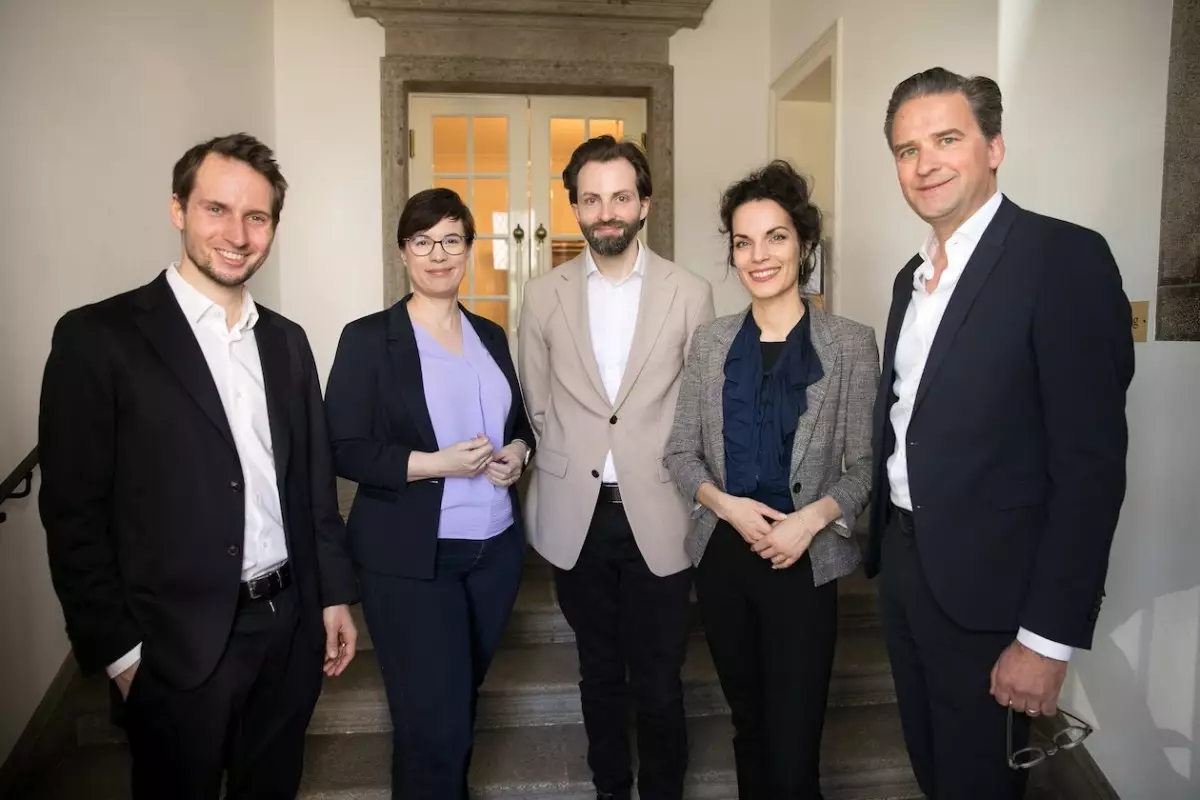In the evolving landscape of technology, few narratives are as compelling as that of Noxtua, formerly known as Xayn. Emerging from the shadows of its initial focus on privacy-centric artificial intelligence for smartphones in 2020, the company has pivoted towards a niche yet vital sector: legal technology. This transition underscores not just a change in direction, but an expanding recognition of the intricate relationship between technology and the legal framework that governs society. The rebranding and subsequent Series B funding round of $92.2 million, led by the formidable C.H. Beck, illustrates a strategic move to develop sovereign AI tailored specifically for the legal industry.
A Unique Partnership with C.H. Beck
C.H. Beck’s position as a leading legal publisher in Germany uniquely places it in a crucial partnership with Noxtua. Owning the repository of Germany’s legal cases and judgments, C.H. Beck provides Noxtua with unprecedented access to extensive legal archives and analytical tools. This partnership is not merely transactional; it represents a holistic vision to create a system where legal AI operates with a high degree of accuracy and legal compliance. To contextualize this, consider that the legal database managed by C.H. Beck comprises over 55 million documents, making it the largest of its kind in the German-speaking world. This extensive repository is essential for training Noxtua’s AI model, ensuring precise legal interpretations and analyses.
Northern Data Group: A Strategic Cloud Alliance
The collaboration with Northern Data Group further solidifies Noxtua’s commitment to operating within the strict confines of German legal and data regulations. By utilizing Northern Data’s cloud infrastructure located within Germany, Noxtua reinforces its promise of sovereignty in a market increasingly wary of geopolitical data implications. The confidence in a Germany-based AI model is significant, especially as many organizations are reconsidering their reliance on U.S.-based infrastructures amid global political tensions. In this regard, Noxtua is carving a path that not only prioritizes data sovereignty but also aligns with the evolving expectations of clients who demand compliance and ethical considerations in their tech solutions.
The Technical Backbone of Noxtua’s AI
At the heart of Noxtua’s offerings is a sophisticated AI engine built on a unique transformer model. Unlike traditional models that are often biased towards American legal structures, Noxtua has honed its architecture to address the nuances of German contracts and legal terminology. Dr. Leif-Nissen Lundbæk’s assertion that U.S. foundational models fall short in precision when applied to German or French contexts is alarming yet accurate. The diverse legal landscapes demand AI systems that are not only aware of language intricacies but also well-versed in local legal standards — something that Noxtua aims to provide comprehensively.
This technical specificity fortifies Noxtua’s appeal across German law firms and corporate legal departments. By investing in a model specifically trained for the unique requirements of local legal frameworks, Noxtua is positioned to outperform competitors who operate on broader, less localized datasets. The implications here are profound: firms utilizing Noxtua’s AI will likely experience enhanced efficiency in research and the drafting of legal documents, consequently leading to a more streamlined legal process.
Addressing the Gaps in Legal AI
Noxtua stands out in addressing critical gaps in the existing landscape of legal AI solutions. As traditional AI providers frequently import American interpretations of law, they inherently produce outputs that may not resonate with or be applicable to the German legal context. The existing disparities necessitate a solution that can bridge this pivotal gap. By generating tailored responses and analyses specific to German legal standards, Noxtua brings a level of sophistication and relevancy that many of its competitors overlook.
Furthermore, the ongoing partnership with prestigious firms like CMS and global entities such as Dentons further supports Noxtua’s ambition to redefine the boundaries of legal technology. Entrusting Noxtua with complex tasks such as legal research and documentation not only enhances operational efficiency for these firms but also fosters a new way of thinking about how AI can complement and elevate legal practices.
Through these partnerships and technological advancements, Noxtua is set to be a game-changer in the legal sector, promoting a new era where sovereign AI and legal integrity coexist harmoniously. In a time when the landscape of law and technology is fraught with challenges, Noxtua’s emergence as a beacon of tailored legal AI underscores the vital need for innovation rooted in accuracy and compliance.

